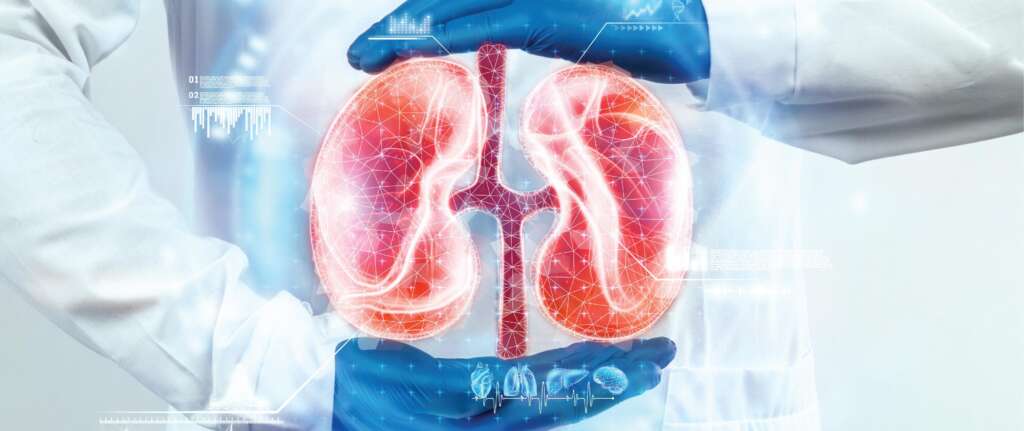Supporting Your Kidneys with Nutrition Before Pregnancy


Embarking on the pregnancy journey involves ensuring optimal health, and vital organs like the kidneys are often overlooked. The article explores supporting your kidneys health with nutrition before pregnancy. It discusses dietary choices that contribute to overall well-being and promote kidney health.
Supporting your kidneys health through nutrition before pregnancy is essential for overall well-being. To promote healthy kidneys:
- Focus on a balanced diet with plenty of water to stay well-hydrated, helping the kidneys flush out waste and toxins.
- Limit sodium intake to reduce the risk of high blood pressure, which can strain the kidneys.
- Include lean protein sources, such as poultry, fish, and legumes, to provide essential amino acids while minimizing the kidney load.
- Include fruits and vegetables rich in antioxidants and potassium to support kidney function and overall health.
Additionally, avoid excessive consumption of sugary and processed foods, as they can contribute to kidney stress. A well-rounded, kidney-friendly diet can help optimize health and prepare the body for a healthy pregnancy. Consulting with a doctor or a registered dietitian for personalized guidance is advisable, especially if you have any pre-existing kidney conditions or concerns about kidney health.
1. The Significance of Kidney Health
a. Understanding Kidney Function
The kidneys are important in filtering waste, regulating electrolytes, and maintaining fluid balance. It’s important to understand how kidneys work to see how nutrition affects them.
b. Kidney Health and Fertility
Kidney health is integral to reproductive well-being. The kidneys filter and eliminate waste, ensuring a clean and balanced internal environment, crucial for creating an optimal setting for conception and a healthy pregnancy.
2. Hydration for Kidney Support
a. The Role of Water in Kidney Function
Adequate hydration supports kidney function by helping to flush out toxins and waste products. Water acts as a natural cleanser, promoting optimal filtration. It ensures that the kidneys can effectively perform their essential role in maintaining a healthy internal environment.
b. Electrolyte Balance through Hydration
Maintaining the right balance of electrolytes, such as sodium and potassium, is crucial for kidney function. Proper hydration helps regulate these electrolytes, preventing imbalances that could strain the kidneys and impact their ability to support overall health.
Also read: The Importance Of Hydration In Pregnancy
3. Kidney-Friendly Nutrients
a. Antioxidants and Kidney Protection
Antioxidant-rich foods, including berries, leafy greens, and nuts, protect against oxidative stress. Including these foods in the diet supports kidney health by reducing inflammation and minimizing damage caused by free radicals.
b. Essential Nutrients for Renal Function
Nutrients like vitamin C, B6, and folate are essential for maintaining renal function. Citrus fruits, bananas, and leafy vegetables are rich sources of these nutrients, contributing to the overall well-being of the kidneys.
4. Managing Sodium Intake
a. The Impact of Excess Sodium on Kidneys
High sodium intake can strain the kidneys, leading to water retention and increased blood pressure. Understanding the negative effects of excess sodium is crucial for making informed dietary choices to support kidney health.
b. Choosing Low-Sodium Alternatives
Opting for low-sodium alternatives and minimizing the use of processed foods can help manage sodium intake. This, in turn, supports healthy blood pressure levels and reduces the strain on the kidneys, building an environment ideal for conception.
Also read: A Guide on How to Get Enough Iodine for Optimal Fertility
5. Balanced Protein Consumption
a. Protein’s Role in Kidney Health
Protein is essential for overall health, but excessive intake can strain the kidneys. Understanding the delicate balance between adequate protein consumption and potential strain on renal function is key for supporting kidney health.
b. Optimal Protein Sources
Choosing high-quality protein sources, such as lean meats, fish, and plant-based proteins like legumes and tofu, ensures a balanced intake. This approach provides essential amino acids without overburdening the kidneys, promoting a kidney-friendly diet.
Also read: Role Of Protein Intake For Optimal Muscle Growth In Pregnancy
6. Kidney Detoxification and Supportive Herbs
a. Natural Detoxification Through Herbs
Certain herbs, like dandelion and parsley, are popular for their ability to support kidney detoxification. While scientific evidence may be limited, including these herbs in moderation may offer additional support for the natural detox processes of the kidneys.
b. Herbal Infusions for Kidney Health
Some consider herbal infusions, such as nettle tea or hibiscus tea, to have properties that support kidney health. Including these infusions in the diet, alongside consulting with doctors, can be a gentle way to provide additional support for renal function.
7. Kidney-Friendly Lifestyle Practices
a. Regular Exercise and Kidney Health
Engaging in regular physical activity promotes overall health, including kidney function. Exercise contributes to maintaining a healthy weight, managing blood pressure, and supporting the kidneys in maintaining a balanced internal environment.
Also read: Elevating Fertility: The Emotional Benefits Of Regular Exercise
b. Stress Reduction for Kidney Well-Being
Stress can impact kidney health. Stress reduction techniques, like meditation, yoga, or deep breathing exercises, support overall well-being. They create a positive environment for kidney health and fertility.
Supporting your kidneys with nutrition before pregnancy underscores the importance of proactive dietary choices in nurturing kidney health. By focusing on hydration, kidney-friendly nutrients, and mindful lifestyle practices, individuals can create an environment that supports the optimal function of these vital organs. This lays the groundwork for a healthy pregnancy. Embracing a holistic approach to nutrition benefits kidney health and contributes to overall well-being, enhancing the journey toward parenthood.



